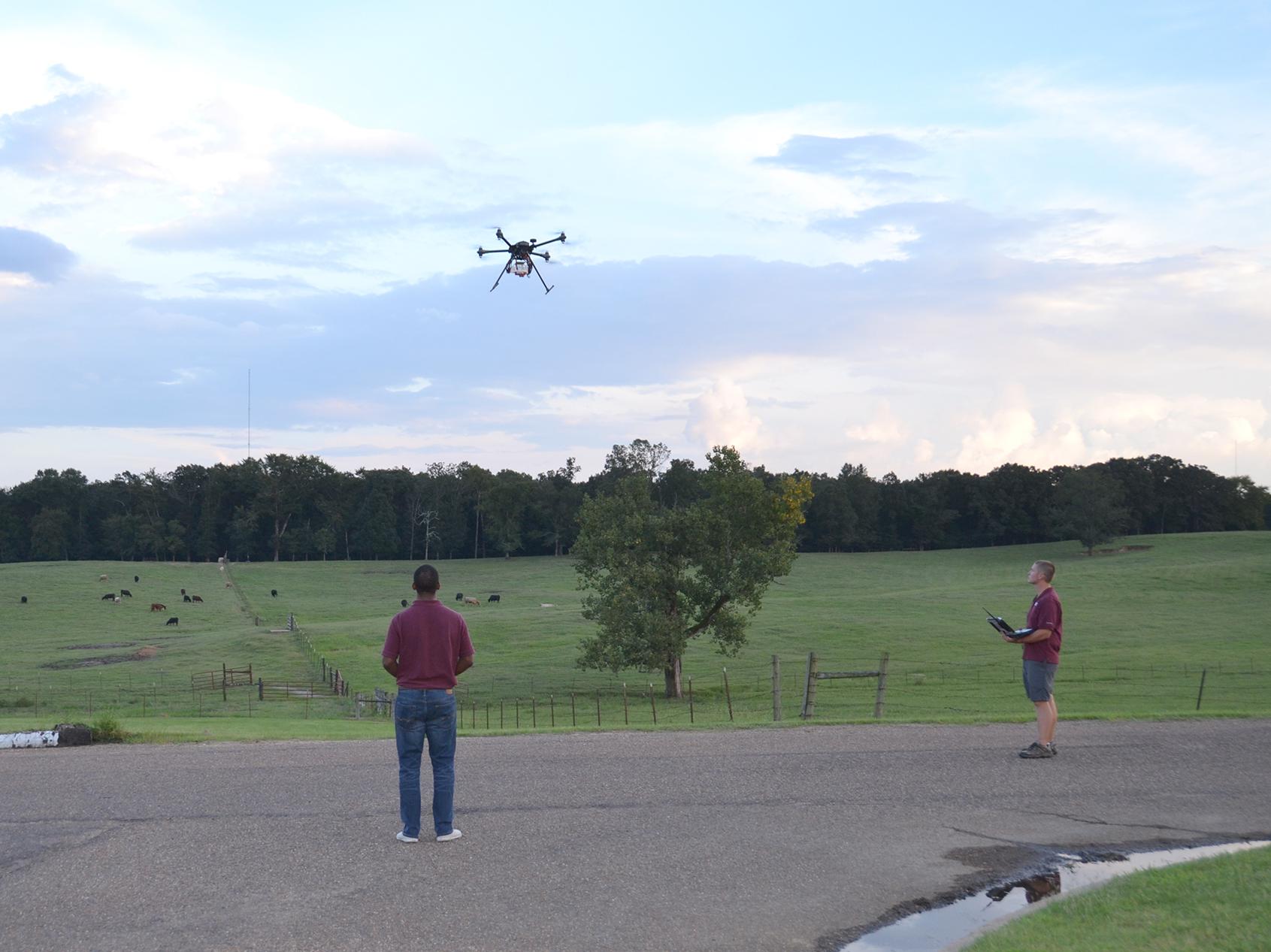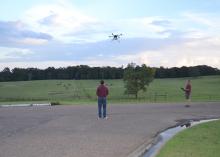Information Possibly Outdated
The information presented on this page was originally released on September 2, 2016. It may not be outdated, but please search our site for more current information. If you plan to quote or reference this information in a publication, please check with the Extension specialist or author before proceeding.
Congressional staffers tour Mississippi ag industry
RAYMOND, Miss. -- Members of Mississippi’s U.S. congressional staff met with agricultural producers, industry leaders and Mississippi State University experts during a recent two-day tour.
Six congressional staffers from each district toured key aspects of the state’s No. 1 industry Aug. 29 and 30.
“Some staff members don’t have much or any ag background, and this is an opportunity for them to better understand how the industry works and how important the ag industry is to this state, the nation and the world,” said Bill Herndon, associate vice president of the MSU Department of Agriculture, Forestry and Veterinary Medicine. “Agriculture is vitally important to the state’s economy and affects all Mississippians, either directly or indirectly.”
Agriculture is Mississippi’s largest employer, providing jobs for about 30 percent of the population. The industry generated a farm-gate value of more than $8 billion last year. This figure is the amount paid to the producer when products leave the farm; it does not include the value gained in processing.
Organized by MSU, Alcorn State University, Mississippi Farm Bureau and the Mississippi Department of Agriculture and Commerce, the tour began at Simmons Farm Raised Catfish in Yazoo City. Other stops included Yazoo Planters Gin, MSU Central Mississippi Research and Extension Center in Raymond, Sanderson Farms headquarters in Laurel, MFP Poultry Farm in Laurel, Mitchell Farms in Laurel, and Tadlock Stockyard in Forest.
Staffers heard an overview of each industry segment they toured, learning about each one’s economic impact and unique advantages and challenges.
On the first day of the tour, the Federal Aviation Administration rules on unmanned aircraft systems [UAS] went into effect. These regulations make it permissible for farmers and timber owners to use the technology to manage crops through remote data collection.
“This is a watershed day for us,” said Robert Moorhead, professor and director of the MSU Geosystems Research Institute during an unmanned aircraft system demonstration at the Central Mississippi R&E Center in Raymond Aug. 29.
“These [unmanned aircraft] are the tools of the future,” Moorhead told the group. “Farmers need this. It is a game-changer for them. These flying computers can gather images in real time and provide detailed crop information within a fraction of the time it would take farmers to gather it manually. Within three years, I expect a majority of farmers will be using these machines regularly on their farms.”
The FAA selected MSU as the lead research university for the Alliance for System Safety of UAS through Research Excellence [ASSURE]. A two-plus-two agreement allows students to spend two years studying precision agriculture and unmanned aircraft systems at Hinds Community College and then complete the final two years of a degree at MSU.
Throughout the tour, producers and industry leaders discussed issues that affect their businesses, including labor regulations and infrastructure integrity.
“In this format, staffers had more time to hear about the concerns and challenges that affect the agricultural industry day-to-day,” said Greg Bohach, MSU vice president for agriculture, forestry and veterinary medicine. “When producers and industry leaders visit Washington to voice their concerns, schedules can be rushed. We were happy to participate in providing a more in-depth view into our vibrant agricultural economy with this tour.”
Staffers also heard from MSU experts, including Tom Tabler, Extension poultry specialist and Brandi Karisch, Extension beef cattle specialist and Mississippi Agricultural and Forestry Experiment Station researcher. They spoke about some misconceptions staffers may encounter when dealing with legislation related to responsible antibiotic use and animal handling.
“Anytime you have questions about the poultry industry, I will help you in any way I can. Just give me a call or send me an email,” Tabler said. “We are here to help you with science-based information. Extension and the Experiment Station have specialists in many fields who can answer questions that might come up when you are dealing with agricultural legislation or regulations.”
MSU also has a two-plus-two articulation agreement with Jones County Junior College in poultry science to assist students interested in careers in the poultry industry and to provide additional support to the poultry industry in Mississippi.
Contact: Dr. Bill Herndon, 662-325-2630; Dr. Greg Bohach, 662-325-3006



